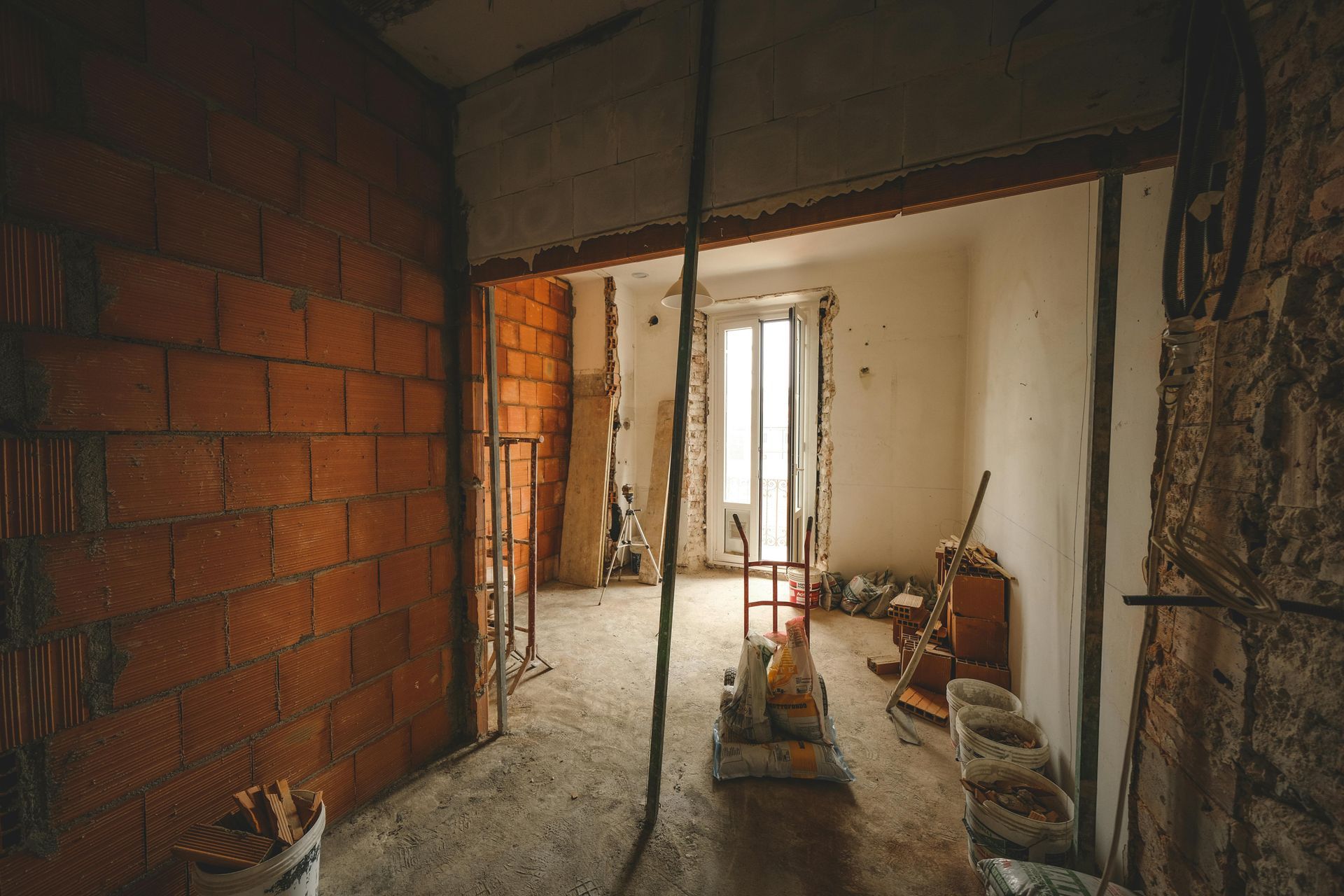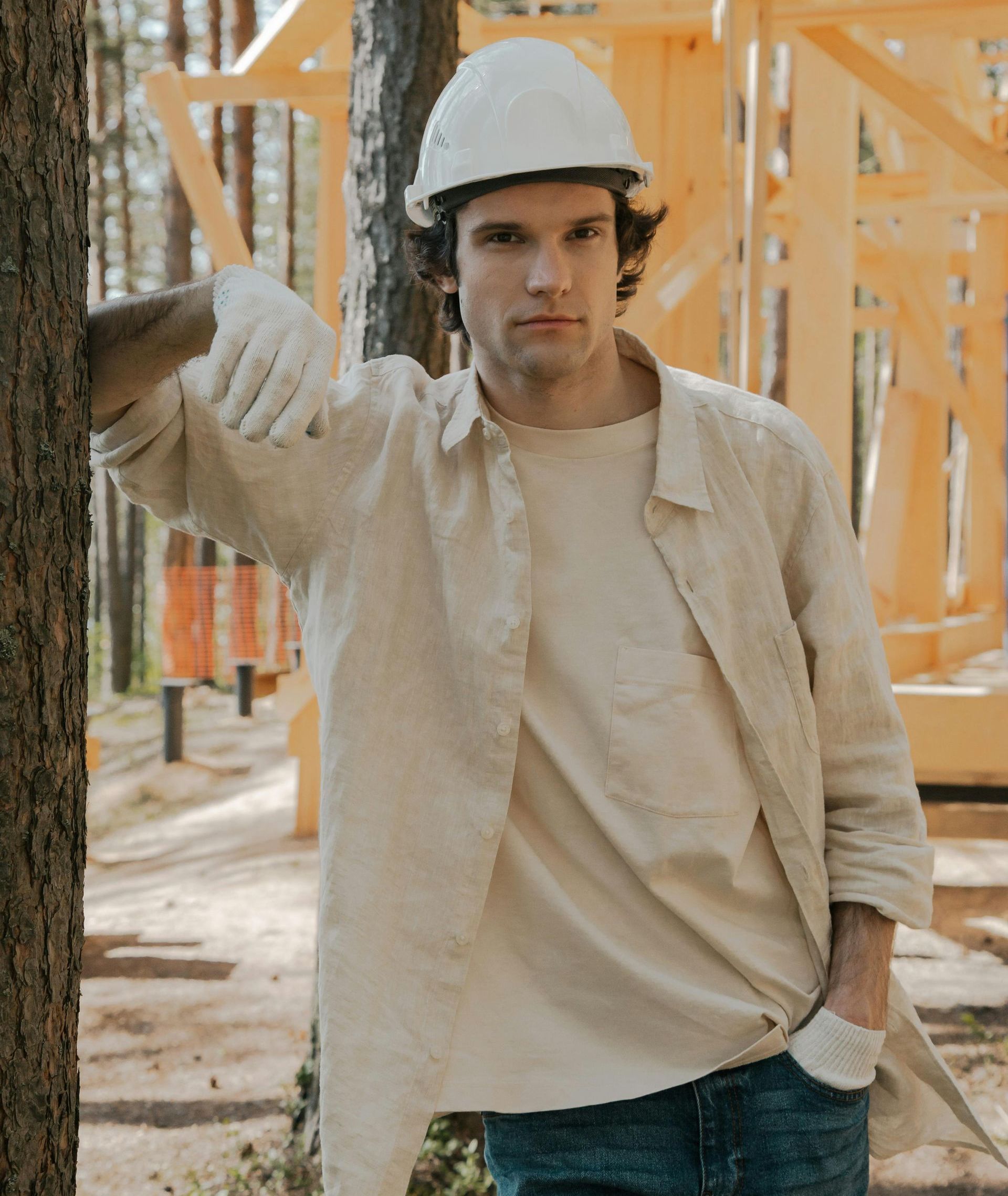Unethical Contractor Alert: Signs & Solutions
Shelly Bouse • November 12, 2024
Spotting an Unethical Contractor: Signs and Solutions

Key Highlights
- The construction industry, while generally composed of reputable professionals, can sometimes attract unscrupulous individuals looking to cut corners.
- Recognizing the signs of unethical behavior in contractors is crucial in safeguarding your construction project from potential pitfalls.
- From bid-shopping and inflated claims to substandard materials and unsafe working conditions, unethical practices can manifest in various forms.
- This blog post aims to equip you with the knowledge to identify red flags when dealing with contractors and provides actionable steps to take if you suspect foul play.
- By understanding the importance of ethical standards and due diligence, you can ensure a smoother, fairer, and more successful construction project.
As a petite, blonde woman, I've often been told that I have "the look" of someone who could easily be taken advantage of. Over the years, I've lost count of the number of times I've encountered contractors, repairmen, and service providers who assumed they could hustle me with inflated bids, hidden fees, and shady practices.
"They see you coming," is what I was often told, implying that my youthful, approachable demeanor made me an easy target for those looking to make a quick buck at the expense of an unsuspecting customer. And for a while, that was true. I'll admit that early on, I was sometimes overwhelmed by the complexities of home repairs, car maintenance, and other areas where I lacked expertise. It was easy for unscrupulous individuals to take advantage of my inexperience and treat me like an easy mark.
Navigating the construction industry can be tricky. It is important to understand ethical standards. You also need to spot potential unethical behavior. Most construction professionals act honestly and with integrity. However, there are some who focus on personal gain instead of quality and fairness. Knowing common unethical practices and being aware of warning signs can help you protect your investment. This way, you can ensure a successful construction project.
Recognizing Unethical Behavior in Contractors

Ethical practices are the foundation of a trustworthy and successful construction industry. Construction professionals should follow these standards for every part of a project. It's important for project owners and ethical contractors to see when these rules are not followed.
Unethical behavior can show up in many ways. This includes ignoring safety rules or more hidden issues like rigging bids and using poor-quality materials. Remember, unethical behavior is not always easy to spot. Having a better understanding of these actions is important for recognizing them and knowing what to do next.
The construction industry has tricky bidding steps and needs special skills. Because of this, it can face different types of unethical behavior. Knowing about these issues is the first way to protect yourself and your project.
Here are some common unethical practices to look out for:
Bid shopping: This is when someone shares a contractor's bid with others to push them into giving lower prices. This can hurt fair competition. Bid peddling: This is the opposite of bid shopping. Here, contractors ask other bidders to submit higher bids. This is so a specific contractor can win the job. Substitution of materials : This happens when cheaper or lower-quality materials are used without letting the client know. This is not right and breaks the contract.
These are only a few examples of illegal practices that sadly happen in the industry. It’s important to remember that dealing with such contractors can hurt your project and keep unethical behavior going in the industry.
The effects of hiring an unethical contractor can be serious. They go beyond high construction costs and delayed timelines. Hiring such a contractor can affect the whole project. It can harm safety, break laws, and take away your peace of mind.
When building codes and safety rules are ignored to save time or money, it can create dangerous buildings. These structures might endanger the people who use them. Also, changing what was agreed on in the project or using poor materials can leave you with a result that does not meet your needs or expectations in quality or value.
Besides losing money and facing issues with the building, you may also have to deal with long disputes. This can lead to legal issues and damage your project's reputation. It is much better to prevent these problems by being aware of warning signs and checking things carefully before you begin.
Unethical behavior can show up in many ways. This includes ignoring safety rules or more hidden issues like rigging bids and using poor-quality materials. Remember, unethical behavior is not always easy to spot. Having a better understanding of these actions is important for recognizing them and knowing what to do next.
Types of Unethical Practices to Watch Out For
The construction industry has tricky bidding steps and needs special skills. Because of this, it can face different types of unethical behavior. Knowing about these issues is the first way to protect yourself and your project.
Here are some common unethical practices to look out for:
Bid shopping: This is when someone shares a contractor's bid with others to push them into giving lower prices. This can hurt fair competition. Bid peddling: This is the opposite of bid shopping. Here, contractors ask other bidders to submit higher bids. This is so a specific contractor can win the job. Substitution of materials : This happens when cheaper or lower-quality materials are used without letting the client know. This is not right and breaks the contract.
These are only a few examples of illegal practices that sadly happen in the industry. It’s important to remember that dealing with such contractors can hurt your project and keep unethical behavior going in the industry.
The Impact of Hiring an Unethical Contractor
The effects of hiring an unethical contractor can be serious. They go beyond high construction costs and delayed timelines. Hiring such a contractor can affect the whole project. It can harm safety, break laws, and take away your peace of mind.
When building codes and safety rules are ignored to save time or money, it can create dangerous buildings. These structures might endanger the people who use them. Also, changing what was agreed on in the project or using poor materials can leave you with a result that does not meet your needs or expectations in quality or value.
Besides losing money and facing issues with the building, you may also have to deal with long disputes. This can lead to legal issues and damage your project's reputation. It is much better to prevent these problems by being aware of warning signs and checking things carefully before you begin.
Red Flags When Dealing with Contractors

Why exactly do some contractors feel emboldened to take advantage of certain customers? It often comes down to a combination of factors - the perception that the customer lacks knowledge about industry standards and pricing, the assumption that they won't put up a fight, and the temptation to boost profits at the customer's expense. Contractors may also rationalize their behavior by telling themselves that the customer "won't notice" the inflated costs or that "everyone does it this way."
Unethical behavior can show up in many ways, from ignoring safety rules to more hidden issues like rigging bids and using poor-quality materials. Practices like bid shopping, where a contractor shares another's bid with competitors to push them into lower prices, or bid peddling, where contractors ask others to submit higher bids so they can win the job, are particularly concerning. Substituting cheaper or lower-quality materials without the client's knowledge is also a clear violation of ethical standards.
Regardless of their justification, the reality is that this type of predatory behavior is unethical and in many cases, illegal. As a consumer, I'm not willing to be on the receiving end of these shady tactics anymore. I've learned to recognize the warning signs, from suspiciously vague estimates to a contractor's condescending attitude. And I've developed strategies to push back against attempts at exploitation. Let's explore.
A sign of potentially unethical behavior is when someone tends to promise a lot but deliver little. Be careful with contractors who quickly agree to impossible deadlines or offer prices much lower than others without a good reason. This approach usually means they may later add extra costs or change the agreed project scope.
These actions come from a lack of ethical considerations, as they focus more on making fast money rather than ensuring client satisfaction and project quality. Make sure to closely check all contracts. Ensure that everything about the project, like deadlines, payment plans, and materials, is clearly mentioned.
Always remember, a trustworthy and ethical contractor will focus on being open and honest. They will explain the project's feasibility and manage your expectations properly.
An important part of a fair contract is being open and honest, especially during the bidding process and in dealing with construction claims. Be cautious of unclear quotes, unexpected fees, and confusion about pricing. These are big warning signs.
Watch out for contractors who don't want to show you details about their costs. If they push you to take a lower bid without a good reason, it might mean they plan to raise prices later. They could do this through questionable construction claims or by using cheaper materials.
A good contractor will focus on clear communication. They will give you detailed paperwork during the project. Remember, a clear bidding process and honest talk are very important. They help build trust and show that the contractor acts ethically.
If you think there are unethical practices, you need to take action quickly. It's very important to have good documentation. Make sure to keep clear records of everything, like meetings, phone calls, emails, and any problems you see in the construction process.
If your concerns are not taken seriously within the company, think about reporting the contractor to the right authorities or professional groups. Good construction project management means keeping high ethical standards and dealing with any wrongdoing.
When you think there might be ethical issues in construction, good documentation is very important. You should carefully record every step of the construction process. This includes writing down any problems, changes from the original plan, or signs of poor work.
Keep copies of all communications. This means keeping contracts, invoices, change orders, and any messages with the construction companies involved. Take time-stamped photos and videos to help show how the project is going and any issues you see.
Strong documentation protects your interests. It is also very useful if the problem leads to legal action or arbitration. Good records show that you care about following the code of ethics in the industry and want to find a fair solution.
If your concerns about unethical practices remain unresolved, reporting the matter to relevant authorities is a crucial next step. Various organizations and bodies oversee ethical conduct within the construction industry.
Below is a table highlighting some key organizations that address ethical issues in construction:
Unethical behavior can show up in many ways, from ignoring safety rules to more hidden issues like rigging bids and using poor-quality materials. Practices like bid shopping, where a contractor shares another's bid with competitors to push them into lower prices, or bid peddling, where contractors ask others to submit higher bids so they can win the job, are particularly concerning. Substituting cheaper or lower-quality materials without the client's knowledge is also a clear violation of ethical standards.
Regardless of their justification, the reality is that this type of predatory behavior is unethical and in many cases, illegal. As a consumer, I'm not willing to be on the receiving end of these shady tactics anymore. I've learned to recognize the warning signs, from suspiciously vague estimates to a contractor's condescending attitude. And I've developed strategies to push back against attempts at exploitation. Let's explore.
Overpromising and Under-Delivering
These actions come from a lack of ethical considerations, as they focus more on making fast money rather than ensuring client satisfaction and project quality. Make sure to closely check all contracts. Ensure that everything about the project, like deadlines, payment plans, and materials, is clearly mentioned.
Always remember, a trustworthy and ethical contractor will focus on being open and honest. They will explain the project's feasibility and manage your expectations properly.
Lack of Transparency in Billing and Quotations
An important part of a fair contract is being open and honest, especially during the bidding process and in dealing with construction claims. Be cautious of unclear quotes, unexpected fees, and confusion about pricing. These are big warning signs.
Watch out for contractors who don't want to show you details about their costs. If they push you to take a lower bid without a good reason, it might mean they plan to raise prices later. They could do this through questionable construction claims or by using cheaper materials.
A good contractor will focus on clear communication. They will give you detailed paperwork during the project. Remember, a clear bidding process and honest talk are very important. They help build trust and show that the contractor acts ethically.
Steps to Take if You Suspect Unethical Practices
If you think there are unethical practices, you need to take action quickly. It's very important to have good documentation. Make sure to keep clear records of everything, like meetings, phone calls, emails, and any problems you see in the construction process.
If your concerns are not taken seriously within the company, think about reporting the contractor to the right authorities or professional groups. Good construction project management means keeping high ethical standards and dealing with any wrongdoing.
Documenting Evidence of Unethical Behavior
When you think there might be ethical issues in construction, good documentation is very important. You should carefully record every step of the construction process. This includes writing down any problems, changes from the original plan, or signs of poor work.
Keep copies of all communications. This means keeping contracts, invoices, change orders, and any messages with the construction companies involved. Take time-stamped photos and videos to help show how the project is going and any issues you see.
Strong documentation protects your interests. It is also very useful if the problem leads to legal action or arbitration. Good records show that you care about following the code of ethics in the industry and want to find a fair solution.
Reporting to Relevant Authorities
If your concerns about unethical practices remain unresolved, reporting the matter to relevant authorities is a crucial next step. Various organizations and bodies oversee ethical conduct within the construction industry.
Below is a table highlighting some key organizations that address ethical issues in construction:
Reporting these issues ensures accountability and protects you and other stakeholders from potential future harm. Addressing ethical violations head-on contributes to a fairer and more transparent construction industry.
When a service provider tries to pull the wool over my eyes, I'm quick to whip out my phone and start comparing quotes. I ask for line-item breakdowns, request references, and don't hesitate to walk away from a deal that doesn't pass the sniff test. And you know what? More often than not, that's exactly what happens. The minute these would-be hustlers realize I'm not the easy target they assumed, their tune changes dramatically.
I take pride in being an informed, savvy consumer. While my appearance may suggest otherwise, I've cultivated a keen eye for detecting shady practices and an unwavering resolve to get the best value for my money.
So the next time a service provider tries to pull a fast one, I'll be ready. Spreadsheet in hand and negotiation tactics at the ready, I'll make it clear that I'm no easy mark. Be warned - I am armed with a spreadsheet and I will leave you a detailed account of our interaction online so that no one else falls victim to your shady practices. The days of contractors taking advantage of unsuspecting customers are over.
Frequently Asked Questions
What makes a contractor unethical?
A contractor shows unethical behavior when they ignore good practices. Some examples are cutting bids when submitting offers, risking safety at the job site, or providing poor-quality work.
How can I verify the ethics of a contractor before hiring?
What should I do if I've already hired an unethical contractor?
- Record all cases of unethical behavior clearly.
- Try to fix issues by talking to each other.
- If that does not work, think about making construction claims and informing the right authorities about the contractor.
Keeping open communication with all stakeholders during the construction project helps to ensure transparency and accountability.
Stay competitive in the digital landscape by maintaining constant connection to your marketing initiatives.

© 2025
Shelly Bouse






